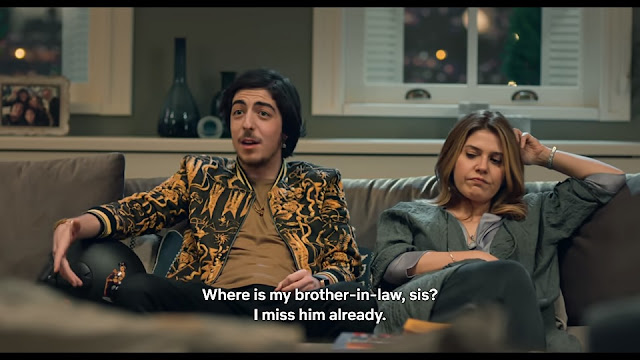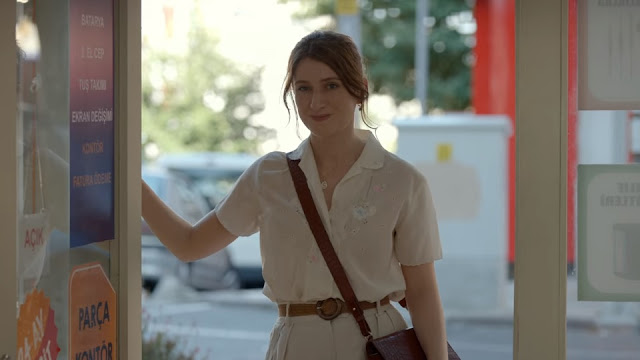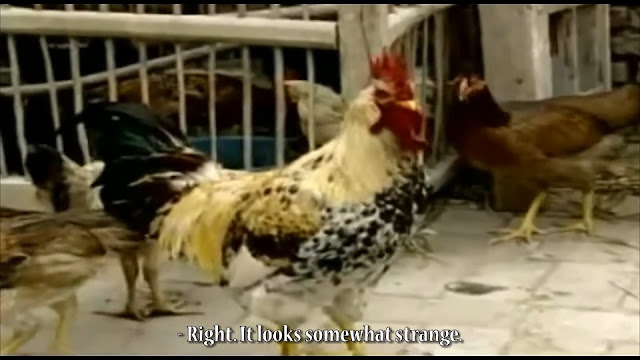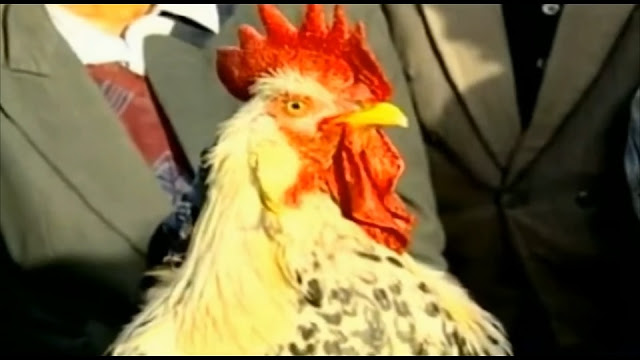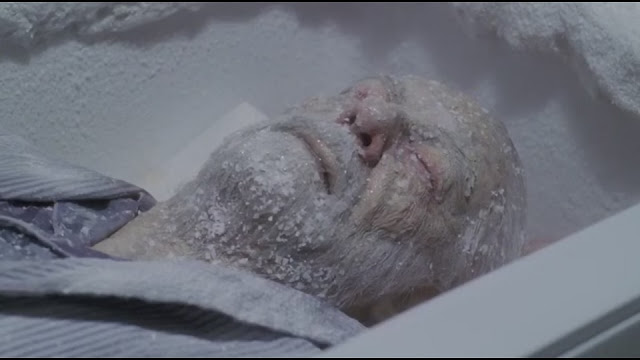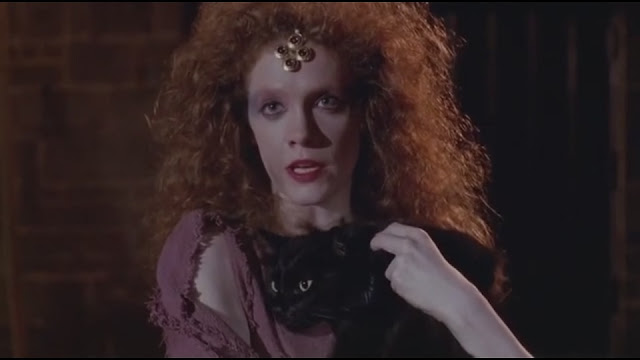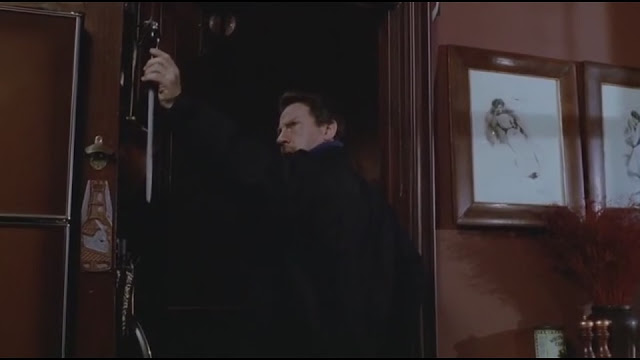Aykut Enişte
Aykut Aslan is an honest shopkeeper, engaged to the vapid Nurhan, and scared stiff of her thuggish family. One day, his shop is emptied by burglars, and insurance agent Gülşah comes to inspect the losses. She quickly discovers he'd left the door unlocked to chase the thieves. But a call from her father provides the answer to both their troubles. If Aykut pretends to be her girlfriend, Gülşah will look the other way and sign his insurance papers. Unfortunately the act works too well, and Aykut must do all he can to scare away this new family before his future in-laws find out...
Aykut Enişte is your typical modern day Turkish comedy, which is definitely a good thing in my eyes! It's a thoroughly entertaining picture, with plenty of comedy, romance, drama, and more. It gets off to a quick start, and introduces characters at a good pace. It has quite a large cast, but due to the time it takes, and the attention it gives each one, the film never feels overstuffed.
The plot itself is fairly simple. Aykut and Gülşah's arrangement allows for many comedic scenarios with her family, as he gets to know them, and tries alienating them, with no success. From hunting trips gone wrong, to destroying artistic sculptures, nothing tarnishes Aykut's image in their eyes. In fact these disasters only seem to improve his standing, for one reason or another.
The comedy in Aykut Enişte is often the kind you can see coming, but it does so in a good way, so you don't mind. There are also plenty of unexpected moments too. Throughout there's a variety to enjoy, from slapstick, to wordplay, eccentric characters, etc. The dialogue is hilarious in places, with a particular highlight being near the end, when an exasperated Aykut lists off the remaining hypothetical things he could do to make the family not like him.
The film's biggest problem for me is that it's just so awkward! You can see exactly where these misunderstandings and lies will lead, and there are so many of them.
I'll give the movie credit, the reveals often aren't as bad as they
could've been. I was expecting my skin to go so tight I could be
mistaken for a corpse, but the anticipation for these moments is worse than the result.
The climax is great. It's split into two, resolving Aykut's engagement, and chasing his feelings for Gülşah, leading to a last-minute dash to the airport, which results in a funny subversion. The film culminates with a great dance, which is great visually, and on a character level. The ending is a little abrupt, but everything has been wrapped up, so it's not too egregious. At first I found it odd the burglars weren't caught, but I don't mind this, as that may have been a bit too convenient.
Aykut is a good lead character. He's a bit clumsy, and not the sharpest knife in the drawer, but is good at heart, and has hidden talents (well, not-so-hidden for those who actually care to listen). He's a relatable guy, and fun to be around.
Gülşah is amusingly devious, in a nice way. She comes
across a little unsympathetic at times, since what befalls Aykut is entirely her fault. She's the
one dragging this out, and changing the conditions of the agreement, screwing Aykut over more and more. She tries telling him his life isn't the only one
that's hard, but based on what we've seen, he's pretty hard up and she's
doing quite comfortably, besides a gently nagging father. But overall she's a likeable girl, and never bad.
The two have a good romance together. They're not making eyes right from the get go, and just treat each-other like regular people. At first I wondered if this was a lack of chemistry, but as the film went on I really liked it. The fact that neither are instantly smitten means their friendship progresses quite naturally as their characters change, and their feelings grow.
Gülşah's brother Mithat is lots of fun. Completely brother-obsessed, he's determined to be Aykut's new best friend, and won't leave him alone. He's often cute and never obnoxious.
I felt the two parts of his character fit well together. He's a big
adorable manchild, but he's also an adult. He'll say or do things (like
charming the ladies) that you don't often see from characters like
this, and I thought it made him well-rounded.
Perhaps my favourite member of the family is young Sude. Feared by the others, Aykut quickly learns not to babytalk her. Despite her age she is fiercely intelligent, and more of a parent to her mother than the other way round (while never coming off as overly precocious or spoilt). She does have a softer side, more befitting her age, and it's sweet when it comes up, namely in the last act. Overall she is used just enough.
The rest of the family is fine, and has their moments. Sadi is the most level-headed one, while his wife Şule is a bit of a connoisseur, and older daughter Dilşah is a slight headcase. Out of the three, I liked Dilşah most. Her feelings towards men are amusing, as are her interactions with Aykut. I also really dug one little moment she gets with Mithat, showing that they're still bro and sis, even if she otherwise wants all men dead. I did find that Şule and Dilşah looked a bit too similar though, which made some scenes a little confusing.
Aykut's prospective in-laws are an amusingly criminal bunch. Nurhan is a demanding and stuck-up bitch. How Aykut ended up engaged to her is both a mystery, yet entirely plausible. Her family are antagonistic to Aykut, except when they think he has money to give, then suddenly they're his best friends. I
liked the speech Aykut gives at the climactic wedding cancellation, and it's a nice message about how this simple but consistent bad behaviour is so harmful. There's a funny ending to the scene too, that is exactly
what I was expecting, in a good way (you can't get through to 'em all!).
The remainder of the characters are good, from Aykut's coworkers (including the human turtle Toptik), and the obnoxious father-daughter dancing team, who serve as the final antagonists in a way. It's very satisfying seeing them lose!
The cast is packed with talented actors, all of whom embody their characters perfectly. Cem Gelinoğlu is fun as the titular hero, as both an everyman and comic relief, and Melis Babadağ is sweet and romantic, and quirky when need be. Mekin Sezer is amusing, while Ecrin Moğultay is adorable and hilariously stern, delivering a great performance, especially for her age. Ege Kökenli has a great exaggerated screen presence as Nurhan. And lastly, Müfit Kayacan, Lale Başar, Selen Domaç, and the rest of the cast are all good.
The music here is all good, with some typical modern Turkish melodies. A lot of these modern films sound similar, but never in a bad or samey way. Instead it's a nice familiarity. The direction is fun too, and we see a decent amount of of Istanbul.
Aykut Enişte is a great time. A little cringey at times from the awkwardness, but it's all part of the experience, and it's nice to see a movie good enough to make you not only look past such elements, but maybe even enjoy them...
Aykut Enişte 2
Aykut and Gülşah are getting ready for their marriage, which must occur within the month, or else her family will lose their money. A hitch comes in the form of Talat, the prodigal brother-in-law. Despite the animosity everyone holds, Aykut is determined to see the best in him, and sees nothing wrong when Talat asks for his ID. The very next day, he realises he's been scammed, and Talat has sold his ID and got him married to a green card immigrant. Desperate for his new family to not realise how naive he's been, Aykut reluctantly teams up with Talat to try and reverse his mistake before his wedding comes...
Aykut Enişte 2 is a great sequel. It builds on what came before, and delivers a new plot that's similar enough to the first, while also being its own unique thing, rather than just blatantly copying what came before.
Aykut is again a fun lead to follow. It's amusing seeing his 'naivete', and how he reacts to the characters around him (one highlight being his encounters with a less-than-friendly neighbourhood child and father). He gets some dramatic moments that flesh out his personality, and explore his backstory just enough.
While Gülşah is more secondary here, since she knows nothing of the overall plot (and if
she did, disaster would fall), this doesn't mean she is underused. She
has some really good scenes with Aykut, including the school trip.
On the romantic angle, Gülşah is a cutiepie, and shares great chemistry with Aykut. It's nice seeing how their relationship is portrayed when they're together from the get-go. While it might be too lovey-dovey for some, I liked it, and I felt it was always believable.
The biggest addition to the movie is the character of Talat. Alluded to in the previous film, and the main reason for Dilşah's unstable and grumpy attitude, he is everything you'd expect. Always happy and smiley in a suspicious way, he's either asking for money (which he gambles away), or making excuses for not giving what he owes.
The film does a really good job of making Talat not irredeemable. A
character like this could've easily been unbearable, and you certainly
wanna slap him much of the time, but his personality comes across
as...not endearing or lovable, but likeable enough that you understand he's not
bad, just misguided and addicted.
The next new character is Selbi, an immigrant from Azerbaijan. Surprisingly pretty, any man would be lucky to be scammed into marriage with her! Naturally she's none too pleased to hear this deal is off, and insists on compensation. She's a grumpy sort, especially after the mini-disasters that befall her, but has a sweet side, and is ultimately a good friend. I really enjoyed her presence, and felt it added a lot. Surprisingly she doesn't even appear until the second half of the movie, yet she gets plenty of development/characterisation and screentime. The only thing I wondered is why someone would need to illegally emigrate from Azerbaijan to Turkey.
Sude doesn't appear as much as I'd have liked, but her scenes all count. You'd never guess she was Talat's daughter, and their relationship is an interesting one. At first she is happy to see her father back, and insists he not be sent packing. But she is less than thrilled upon seeing his gift-A shape sorter for a valedictorian. She tries connecting with him, but eventually puts her foot down, and bluntly tells her father to behave, or she will destroy him. She's far more of a parent than he is!
Mithat is as cute and innocently obsessive as before. He's overjoyed at first to see Talat back, yet also wary after his previous encounters. He becomes instantly smitten with Selbi, much to her annoyance, and is indirectly responsible for much of the misfortune that befalls her. Still though, he might get lucky!
The rest of the family entertain. Dilşah has some good scenes with her ex(?), and holds her own. Matriarch Şule meanwhile is a culture buff this time round, proclaiming "One country with two flags!" and going slightly overboard in trying to cater to her new Azerbaijani guest. There are long stretches where the family don't appear, but the scenes they do get alleviate this.
Aykut Enişte 2 has a very good structure. While it might be a little long at 2 hours, it breezes right by, and each scene has purpose. The film opens by catching us up to speed with the cast and their personalities, then shakes things up with Talat's unexpected arrival. From here we get some funny moments as Aykut tries following the trail of his ID. The second hour changes gears and is focused on trying to get money for the Azerbaijani lioness.
The dramatic moments are all handled well, namely Aykut's obligation to the family. What really excels is how the central drama is delivered. No-one's anger is misplaced, and Aykut isn't mistreated. It's acknowledged that it's not really his fault, and the pressure of getting the inheritance in time is ultimately a 'selfish' action. I appreciate how multi-faceted the conflict is.
Other things I liked were Aykut's unwillingness to take advantage of Selbi's amnesia to sign the divorce papers (long story!), and the stuff with the teacher near the end. All of this plays really well into Talat's arc after Aykut confronts him (even if the dialogue was a little confusing at first).
Everything culminates in a really wonderful climax! It's creative, fits with the leads' personalities and perfectly sells why these characters are in love. This ranks as one of the best proposals to have ever been in a Turkish film!
There are plenty of laughs to enjoy here. Just like the first movie, Aykut Enişte 2 has plenty of awkwardness on display. It's never too bad though, and all has a point. Without it, Talat would never have been reformed, Selbi wouldn't have found help, nor new friends, and Aykut's grand proposal wouldn't have happened.
The cast here all do a fantastic job. Everyone from the last movie is on top form, with Cem Gelinoğlu and Melis Babadağ being great leads once again (while Başar and Domaç are made to look differently). Newcomers Hakan Yılmaz and Nezaket Erden are perfect additions. Yılmaz nails the phoney positivity of Talat, but also shows enough genuine warmth and sincere smiles that his character doesn't feel soulless. Erden meanwhile provides a different female character to the others, and has a nice mature look.
The visuals are once again superb, and the city of Istanbul is shown well, from its high points to the dingier suburbs. The film is very well directed, and I particularly liked the moment with a certain photo. It's shown cleverly, enough for us to notice, and not shoved in our faces.
Aykut Enişte 2 is a perfect example of a sequel done right, and more than lives up to the first movie. Overall, both are well worth checking out, and great introductions to Cem Gelinoğlu and these other actors...







